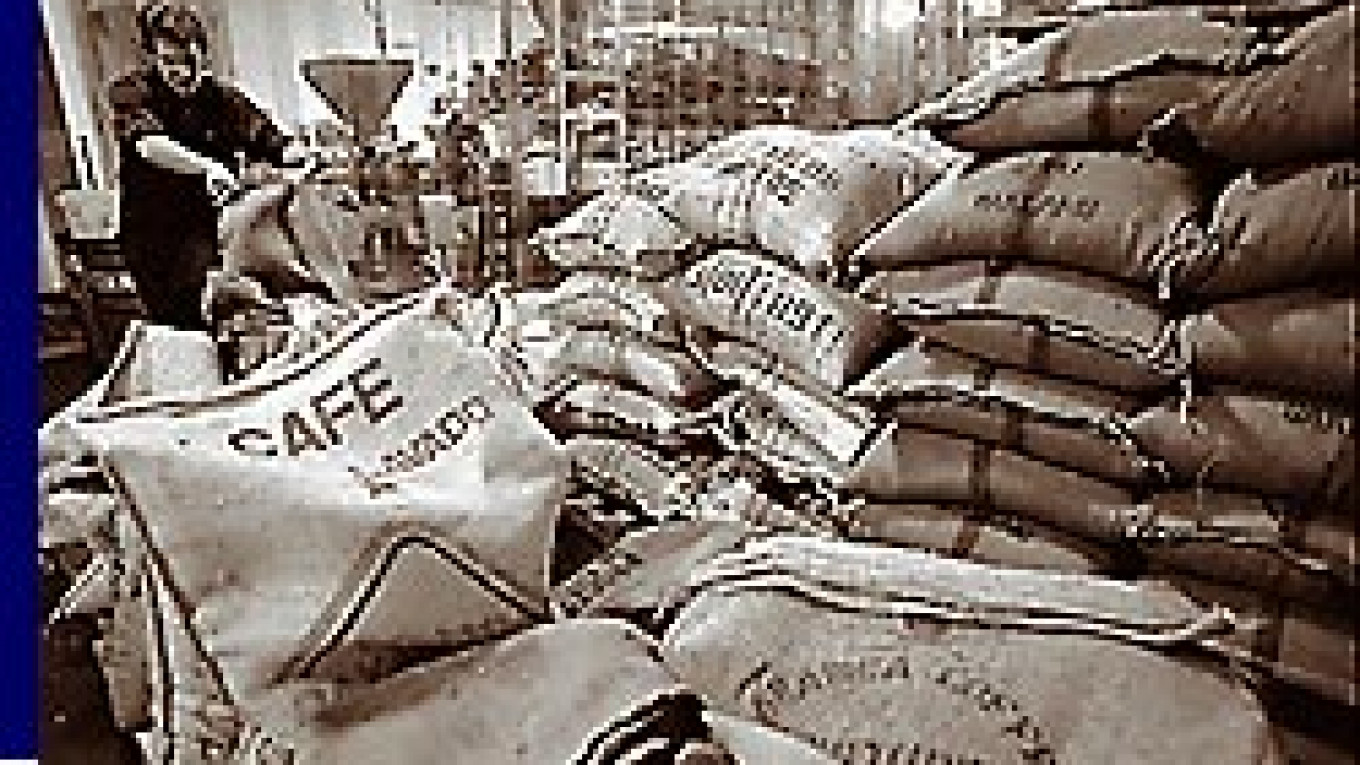The new standard is being lobbied by the recently established Organization of Coffee Manufacturers in Russia, which includes Kraft Foods, Tchibo, Montana Coffee, Paulig and Douwe Egberts, which produces Moccona brand coffee.
Generic and low-grade coffee control about 30 percent of the coffee market, said a representative with a major coffee firm. A significant number of these products do not meet international standards and by the same token, the proposed state standard.
Annual retail sales of coffee comprise between $600 million and $1 billion in Russia, according to various assessments.
The Grand trading house assesses the instant coffee market at 60,000 metric tons with a wholesale turnover of $800 million per year.
According to international standards, the word "coffee" means a dry product mixed with water and made exclusively from coffee grains.
"Russian standards differ radically from those accepted internationally," said Jennifer Galencamp, director for foreign corporate affairs with Nestl?.
The Russian standard is stopping larger firms from pushing their comparatively expensive caffeine-free coffee on the domestic market. Douwe Egberts, Kraft Foods, Tchibo and Montana Coffee all offer caffeine-free products.
"The current state standard is based on antiquated criteria and determines the quality of a product in terms of the caffeine and the sugar it contains," Galencamp said. "Under this standard, caffeine-free coffee made from high quality beans is not coffee. Coffee drinks that at best are made from chicory and at worst from production leftovers ?€” from shells or grain ?€” are formally known as coffee."
Mysore Gold and companies with less memorable names that make coffee by "the client?€™s recipe" ?€” always for Russia and always somewhere overseas ?€” fall within the low-quality category, the more well-known manufacturers say.
According to major players in the coffee market, once the standard has been finalized a large portion of low-grade brands will be relegated to the coffee-drink category and marked accordingly.
"Because of the muddle over the standard," said Alexei Melnikov, head of Douwe Egberts in Russia, "manufacturers of natural coffee lose their potential consumers, who, by purchasing so-called ?€?real Brazilian coffee?€™ and realizing that it is a poor-quality product lose faith in the big brands through association."
Melnikov said international manufacturers of the brands for the mass market, such as Nestl? and Kraft Foods, are the first to be affected.
The price-sensitive consumer chooses coffees of dubious brands because they are 5 rubles to 10 rubles cheaper.
Rostest-Moscow is working on the state standard for coffee and is bringing it in line with international standards. This process could take several months, an employee with the State Standards Agency said.
A Message from The Moscow Times:
Dear readers,
We are facing unprecedented challenges. Russia's Prosecutor General's Office has designated The Moscow Times as an "undesirable" organization, criminalizing our work and putting our staff at risk of prosecution. This follows our earlier unjust labeling as a "foreign agent."
These actions are direct attempts to silence independent journalism in Russia. The authorities claim our work "discredits the decisions of the Russian leadership." We see things differently: we strive to provide accurate, unbiased reporting on Russia.
We, the journalists of The Moscow Times, refuse to be silenced. But to continue our work, we need your help.
Your support, no matter how small, makes a world of difference. If you can, please support us monthly starting from just $2. It's quick to set up, and every contribution makes a significant impact.
By supporting The Moscow Times, you're defending open, independent journalism in the face of repression. Thank you for standing with us.
Remind me later.


